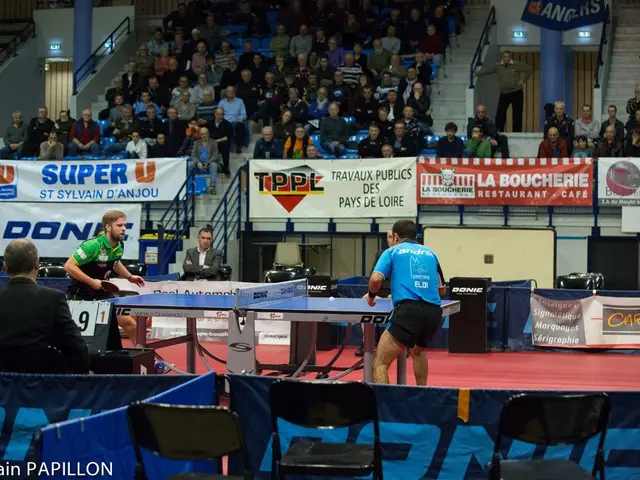Middle Eastern conflict escalates as Hezbollah calls for negotiation with Saudi Arabia following Israel's assault on Qatar
In a significant development, the Lebanese Cabinet approved a plan on August 5 to centralize all weapons under state control, including those belonging to Hezbollah. The implementation of this plan, scheduled to be completed by the end of 2025, was also confirmed by the government. However, the contents of the army's plan remain confidential.
Hezbollah Secretary-General Naim Qassem has emphasized that Hezbollah's weapons are aimed only at Israel. Despite this, the group has not agreed to surrender its arms, as per Qassem's statement. Hezbollah opposes the disarmament of its own weapons but supports the disarmament of other militias in Lebanon while maintaining a key role within the Lebanese army and political system.
Qassem has also called on the Lebanese government to prioritize expelling Israeli forces from Lebanese territory. Hezbollah is ready to cooperate with the Lebanese army, according to Qassem.
Meanwhile, tensions in the Middle East continue to escalate. Israel's attack on Qatar, as claimed by Qassem, has put the region at a dangerous crossroads. However, Trump stated that Israel will not strike Qatar again after the deadly Hamas targeting in Doha.
Qassem has outlined three key principles for dialogue: addressing issues while securing mutual interests, recognizing Israel as the adversary, and freezing past disagreements. Hezbollah Secretary-General Naim Qassem also called on Saudi Arabia to open a new chapter of dialogue with the group.
Qassem made these remarks during a televised speech marking the first anniversary of senior Hezbollah commander Ibrahim Akil's death. He argued that suppressing resistance benefits Israel and endangers other nations.
As the situation in the Middle East continues to evolve, it is clear that the centralization of weapons in Lebanon and the dialogue between various factions will play a crucial role in maintaining peace and stability in the region.
Read also:
- United States tariffs pose a threat to India, necessitating the recruitment of adept negotiators or strategists, similar to those who had influenced Trump's decisions.
- Weekly happenings in the German Federal Parliament (Bundestag)
- Southwest region's most popular posts, accompanied by an inquiry:
- Discussion between Putin and Trump in Alaska could potentially overshadow Ukraine's concerns








